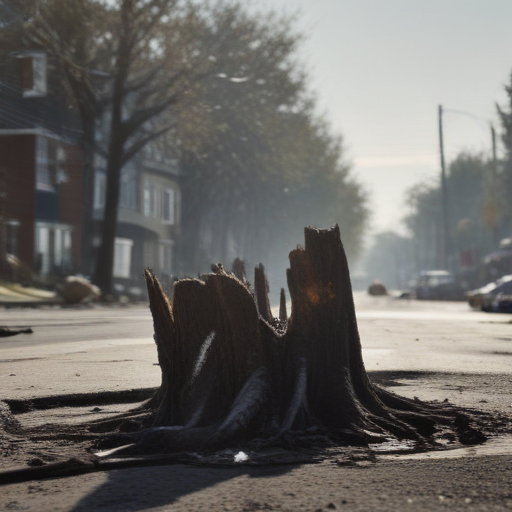The recent Eaton fire in Altadena, California, has left a profound impact on the local community, particularly among Black residents who have been disproportionately affected by the devastation. Altadena, a quaint town nestled in the foothills just outside Los Angeles, has long been known for its vibrant middle-class Black families. Now, many of these families, who have called the area home for decades, are grappling with the loss of their homes and the sense of community that defined their lives.
For individuals like Shirley Taylor, who moved to Altadena in 1979 from North Carolina, the town represented a peaceful haven filled with familial connections and joy. Taylor, who worked at the Social Security Administration, purchased her dream Craftsman home with beautiful mountain views for just $75,000. Yet, this cherished environment is now marred by the aftermath of the fire, which has left entire neighborhoods in ruins, turning them into “deserts of ash.”
According to reports, nearly 21 percent of the residents directly affected by the fire are Black, which is significant given that Black individuals make up only 8 percent of the overall population in Los Angeles County. This situation has sparked concerns over the future of what was once a flourishing Black enclave in Altadena, especially for those residents who lacked fire insurance.
The tragedy has also claimed the lives of several cherished members of the community, including 82-year-old Rodney Nickerson and 95-year-old Dalyce Curry, both of whom were deeply woven into the fabric of neighborhood life. This loss extends beyond physical homes; it threatens to dismantle a tightly-knit community built on mutual support and shared experiences.
Historically, Altadena’s west side, where many Black families reside, has been shaped by the legacy of redlining and discrimination, complicating their access to homeownership they would otherwise enjoy. Yet, the community has thrived against the odds, and local residents took pride in erecting a network filled with artists, civil servants, and retirees working together to uplift each other.
The recent fire has unveiled the fragility of this community bond as many residents fear displacement and gentrification could accelerate in the wake of the disaster. The median house price in Altadena has soared to nearly $1.3 million, creating additional hurdles for those who wish to remain in the area.
In light of the calamity, community members are coming together to support one another through group chats that offer resources and encouragement during these challenging times. As Felita Kealing, a long-time resident, pointed out, the love and interconnectedness of the community are evident even amid the shared loss. Local leaders recognize that the impact of the fire transcends mere property loss—it’s also a significant cultural blow that threatens future generations.
While the challenges ahead are daunting, there remains a hopeful undercurrent in Altadena. The strong sense of community and resilience among residents suggests that, together, they can rebuild not only their homes but also the foundation of camaraderie that underscores their identity. The enduring commitment to support one another, despite the upheaval, signifies a collective strength that will be crucial as they navigate this difficult journey of recovery.
